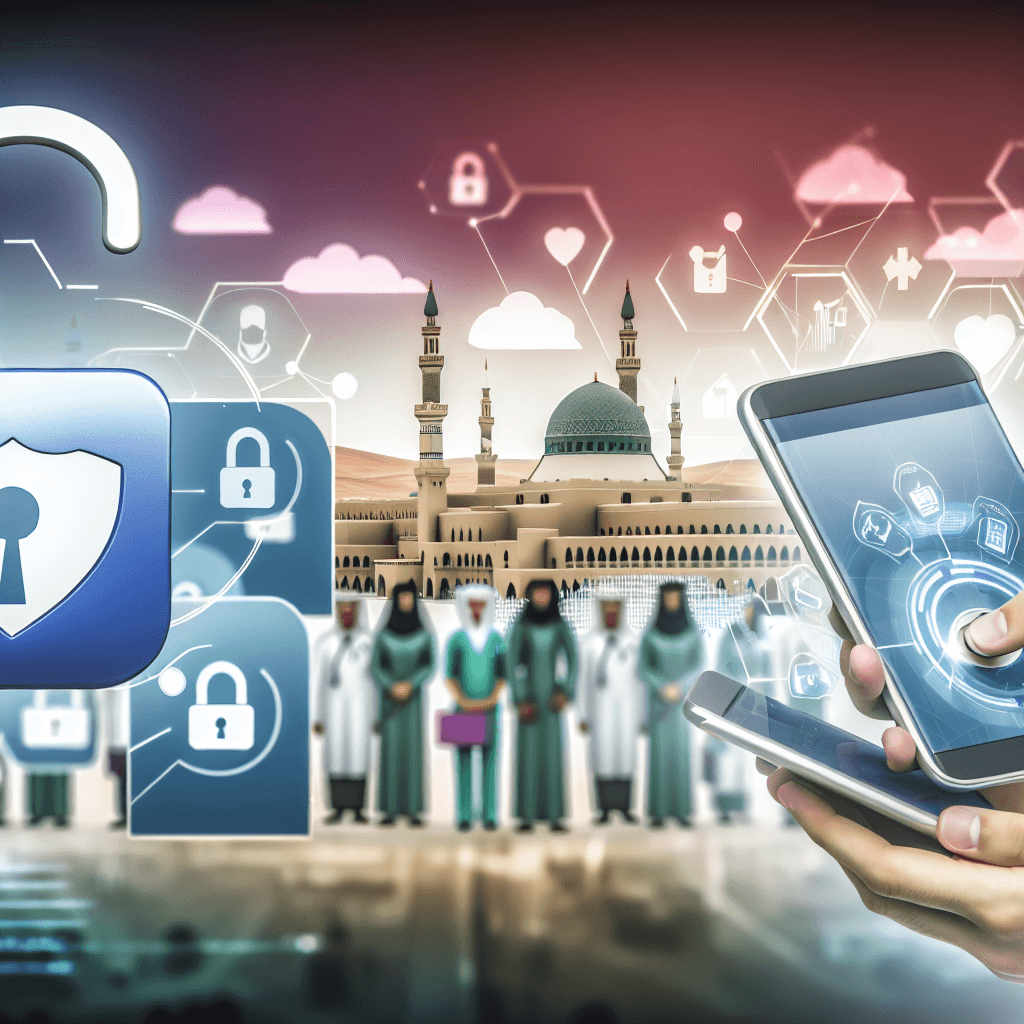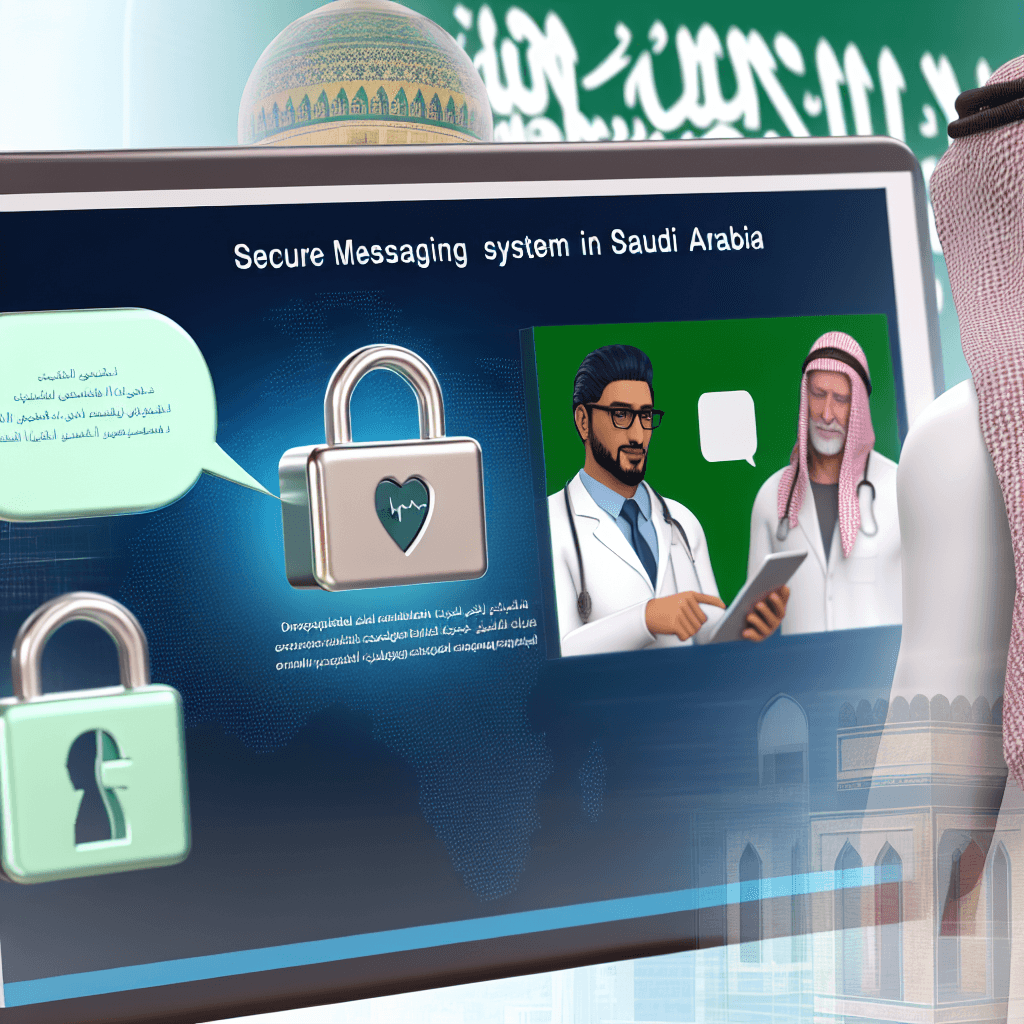Explore the Middle East and Saudi Arabia’s market for secure messaging in healthcare, focusing on trends, growth, and key players.
Middle East and Saudi Arabia Secure Messaging in Healthcare Market

Table of Contents
- Middle East and Saudi Arabia Secure Messaging in Healthcare Market
- Overview of Secure Messaging in Healthcare
- The Importance of Secure Messaging in the Middle East and Saudi Arabia
- Current Trends in Secure Messaging in Healthcare
- Case Studies and Examples
- Case Study 1: Saudi Arabia’s National Health Information System
- Case Study 2: Telemedicine in the UAE
- Challenges in Implementing Secure Messaging
- Future Prospects
- Conclusion
Middle East and Saudi Arabia Secure Messaging in Healthcare Market

The healthcare industry globally is undergoing a significant transformation, largely driven by the integration of digital technologies. In the Middle East, and particularly in Saudi Arabia, the adoption of secure messaging systems in healthcare settings has become a focal point for enhancing the quality of care, ensuring patient privacy, and streamlining operations. This article explores the current landscape, challenges, and future prospects of secure messaging in healthcare within these regions.
Overview of Secure Messaging in Healthcare
Secure messaging in healthcare refers to the use of encrypted communication platforms that allow healthcare providers to share patient information, discuss treatment plans, and handle emergencies more efficiently while complying with legal standards such as the Health Insurance Portability and Accountability Act (HIPAA) in the U.S., or similar regulations in other countries. These platforms are designed to ensure that sensitive data is protected against unauthorized access.
The Importance of Secure Messaging in the Middle East and Saudi Arabia
The Middle East and Saudi Arabia have unique cultural, social, and regulatory landscapes that influence the adoption of technology in healthcare. The importance of secure messaging in these regions can be attributed to several factors:
- Regulatory Compliance: Countries in the Middle East are increasingly implementing strict regulations regarding patient data privacy and security, necessitating the adoption of secure communication tools.
- Healthcare Modernization: Many Middle Eastern countries, including Saudi Arabia, are on a path to modernize their healthcare systems, with digital transformation being a key component.
- Improving Healthcare Quality: Secure messaging enables quicker consultations, faster emergency responses, and improved coordination among healthcare providers, leading to better patient outcomes.
- Mobile Penetration: High rates of mobile penetration in the region provide a robust platform for the adoption of mobile-based secure messaging solutions.
Current Trends in Secure Messaging in Healthcare
In recent years, several trends have emerged in the secure messaging space within the healthcare sector of the Middle East and Saudi Arabia:
- Integration with Electronic Health Records (EHR): Secure messaging solutions are increasingly being integrated with EHR systems to provide seamless access to patient data.
- Cloud-based Solutions: There is a growing inclination towards cloud-based secure messaging solutions due to their scalability, cost-effectiveness, and ease of deployment.
- AI and Machine Learning: Advanced technologies like AI are being employed to enhance the capabilities of secure messaging systems, such as by providing predictive insights.
Case Studies and Examples
Several successful implementations of secure messaging systems in the Middle East and Saudi Arabia highlight the benefits and potential of this technology:
Case Study 1: Saudi Arabia’s National Health Information System
Saudi Arabia has implemented a comprehensive national health information system that includes secure messaging features. This system allows for efficient communication between healthcare providers across the country, enhancing the coordination of care and ensuring quick access to patient records.
Case Study 2: Telemedicine in the UAE
In the United Arab Emirates, secure messaging has been a crucial component of telemedicine platforms, enabling doctors to offer consultations and follow-up care remotely. This has been particularly valuable during the COVID-19 pandemic, where minimizing physical contact was essential.
Challenges in Implementing Secure Messaging
Despite the clear benefits, several challenges hinder the widespread adoption of secure messaging systems in healthcare in the Middle East and Saudi Arabia:
- Resistance to Change: There is often resistance among healthcare providers to adopt new technologies, stemming from concerns over complexity or disruptions to established workflows.
- Infrastructure Limitations: In some areas, especially rural or underdeveloped regions, inadequate technological infrastructure can limit the effectiveness of digital solutions.
- Data Security Concerns: With increasing cyber threats, there is a continuous need to enhance the security features of messaging systems to protect sensitive health information.
- Regulatory Variations: Differences in regulations across countries in the Middle East can complicate the deployment of standardized solutions.
Future Prospects
The future of secure messaging in healthcare in the Middle East and Saudi Arabia looks promising, with several developments on the horizon:
- Government Initiatives: Governments are increasingly supporting digital health initiatives, which will likely include enhancements to secure messaging systems.
- Partnerships and Collaborations: Collaborations between technology providers and healthcare institutions are expected to drive innovation and adoption.
- Enhanced Interoperability: Efforts are being made to improve the interoperability of secure messaging systems with other health IT systems, which is crucial for comprehensive care coordination.
Conclusion
The integration of secure messaging in the healthcare systems of the Middle East and Saudi Arabia is transforming the landscape of healthcare delivery. With its ability to ensure secure and efficient communication, this technology holds the potential to significantly enhance patient outcomes and operational efficiency. While challenges remain, the ongoing advancements and increasing governmental support are paving the way for a more connected and efficient healthcare system in these regions.
In conclusion, as the Middle East and Saudi Arabia continue to embrace digital transformation in healthcare, secure messaging stands out as a critical component that will drive future developments in this sector.








